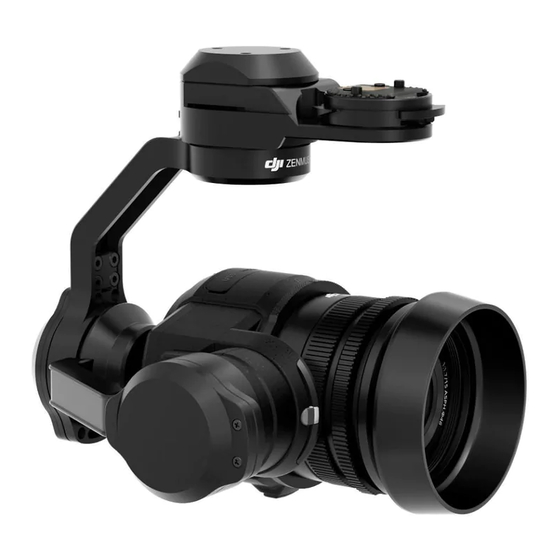dji Zenmuse X5 Manual
Browse online or download pdf Manual for Action Cameras dji Zenmuse X5. dji Zenmuse X5 11 pages. For inspire 1 pro
Also for dji Zenmuse X5: User Manual (17 pages), User Manual (11 pages), User Manual (18 pages), User Manual (18 pages)

If you're interested in drones you will have no doubt seen all the spectacular crashes on YouTube and heard about
drones flying away by themselves. Drones like the DJI
Inspire 1
or
Phantom 3
are highly complex devices that rely on
various systems to perform properly. While there's no way to guarantee against a hardware or software problem
there are a few things you can do to minimise the chances of crashing. Here are my top tips that could save your DJI
drone.
1. Know when and when NOT to calibrate the compass
A lot of people recommend calibrating the drones compass each time it's flown at a different location. While this
seems to work for some I think it introduces unnecessary risk. Let me explain why...
When you perform a compass calibration you're letting your drone test its surroundings for magnetic force and once
the calibration is complete it stores that data and assumes that those forces are normal for the current location and
will be consistent throughout the flight. But what if there's a large electrical cable or metal pipework buried below the
paving you're standing on? If that were the case then the calibration you've just performed will have taken those
effects into account and the moment the drone takes off it will be flying with incorrect compass data.
Unless you've travelled a long way (hundreds of miles) since your last flight there's no real need to re-calibrate the
compass if you already have a good calibration locked in. If you find yourself in a nice open undeveloped area then
it's a good time to grab a clean compass calibration, otherwise why replace a clean calibration with one from an area
where you have no idea what unknown forces are at play.
2. Know when and when NOT to calibrate the IMU
An IMU calibration resets the gyroscope and accelerometer data to tell the aircraft when it's perfectly level and not
moving. I only do an IMU calibration after a firmware update or if I've travelled to another country and the drone could
have suffered knocks or large atmospheric changes.
